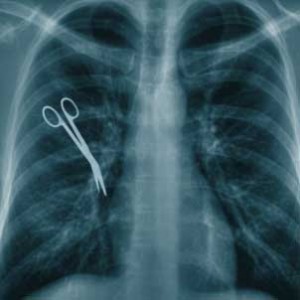June 27th, 2012 by Dr. Val Jones in Health Tips, Opinion, Research
1 Comment »
 One would think that happiness and healing are inextricably linked in healthcare, but the Happy Hospitalist (HH) raises an interesting question: is modern medicine’s emphasis on patient satisfaction (and shared decision-making) sacrificing our quality of care? A recent study found that patients who preferred their physicians to take the lead in their medical decision-making had shorter, less costly hospital stays.
One would think that happiness and healing are inextricably linked in healthcare, but the Happy Hospitalist (HH) raises an interesting question: is modern medicine’s emphasis on patient satisfaction (and shared decision-making) sacrificing our quality of care? A recent study found that patients who preferred their physicians to take the lead in their medical decision-making had shorter, less costly hospital stays.
HH argues that if physicians are expected to perform like airline pilots, reliably choosing/performing the best course of action for those depending on them, then patients should behave like passengers. In other words, passengers don’t tell the pilot how to fly the plane, nor should patients override a physician’s clinical judgment with personal preferences.
I think this analogy misses the mark because patients are rarely interested in making decisions about how a physician accomplishes her task, but rather which tasks she undertakes. Flight passengers aren’t interested in quibbling about the timing of landing gear, they are interested in the selection of their destination city. And so they should be.
While there may be a correlation between physician-led decision-making and shorter hospital stays, I’m not convinced that this translates to improved care quality. For the study subjects, discharge could have been delayed because the “empowered” patients insisted on ensuring that a home care plan was in place before they left the hospital. Or perhaps they wanted to get their prescriptions filled before going home (knowing that they couldn’t get to their home pharmacy over the weekend)? The study did not assess whether or not the discharge delays reduced readmission rates, nor did it seek to determine the cause of prolonged stays. This study alone is insufficient to draw any conclusions about the relative value of the patient empowerment movement on health outcomes.
While I certainly empathize with HH about the excessive focus on patient satisfaction surveys over true quality care, I strongly believe that an educated, participatory patient is our best ally in the practice of good medicine. There are simply too many cogs and wheels turning at once in the healthcare system to be able to ensure that the right care is provided at the right time, every time. We need all the help we can get to monitor our care plans in order to avoid medical errors, compliance problems and missed opportunities.
If you see something, say something. That principle applies to healthcare as much as it does to flight safety.
July 23rd, 2011 by Dr. Val Jones in Health Tips, Opinion
No Comments »
 Alright, I admit that the title of this post is a little dramatic. But it really does seem that most people I know socially have had a bad experience with the healthcare system lately. Take for example my friend whose 3- year-old went to the hospital for a common pediatric procedure – the little girl was overdosed on a medicine, aspirated, got pneumonia, went into respiratory distress (noticed first by her mom) and remained in the pediatric ICU for several days. The hospital staff swept the overdose under the rug, and outright denied it happened when faced with direct questioning. As outrageous as that all is, my friend chose not to pursue action against the hospital and staff for their error and behavior. She just “let it go” because no permanent harm had occurred.
Alright, I admit that the title of this post is a little dramatic. But it really does seem that most people I know socially have had a bad experience with the healthcare system lately. Take for example my friend whose 3- year-old went to the hospital for a common pediatric procedure – the little girl was overdosed on a medicine, aspirated, got pneumonia, went into respiratory distress (noticed first by her mom) and remained in the pediatric ICU for several days. The hospital staff swept the overdose under the rug, and outright denied it happened when faced with direct questioning. As outrageous as that all is, my friend chose not to pursue action against the hospital and staff for their error and behavior. She just “let it go” because no permanent harm had occurred.
Another dear friend was recently misdiagnosed with having a pulmonary condition when he was in heart failure from an arrhythmia… and almost had a stroke during a contraindicated pulmonary stress test. His simple conclusion: “doctors suck.” Was anyone held accountable for this? No. Again because no permanent harm had occurred.
Just the other night I was having dinner with some visitors from out of town. They both told me Read more »
July 2nd, 2011 by DavedeBronkart in Opinion
No Comments »

e-Patients who want to collaborate with their physicians, and be responsible for their medical decisions, need to clearly understand what constitutes good evidence. It’s not always easy.
Now Richard Smith, a 25 year editor of the British Medical Journal, has written another piece for the BMJ blog, citing a JAMA study showing “that of the 49 most highly cited papers on medical interventions published in high profile journals between 1990 and 2004 a quarter of the randomised trials and five of six non-randomised studies had been contradicted or found to be exaggerated by 2005.”
What’s an e-patient to do?? Especially when we “patients who google” are so often sneered at by physicians who rely on these same journals.
Well, we need to educate ourselves, and learn to speak calmly, confidently and understandingly to anyone who doesn’t understand – just as we expect clinicians to do with us.:–) In short, we need to Read more »
*This blog post was originally published at e-Patients.net*
June 11th, 2011 by StevenWilkinsMPH in Opinion
3 Comments »

When you or I visit an accountant, a lawyer or car mechanic, we know what our role is and have a pretty clear understanding of what the ” expert” is supposed to do. But when it comes to a trip to the doctor these days the roles and responsibilities of patients and physicians have become blurred and unpredictable…and the patient seems to generally be on the losing end.
Take my Mom’s case. My Mom who was 89 years old and evidently had severe osteoarthritis. She never knew that even though she was been seen every couple of months by her Internist for years and years. It’s too bad…because my Mom died last week from complications due to a compression fracture of her spine. Turns out her spine was very fragile according to her consulting Neurosurgeon but no one ever told her.
The first question that entered my mind when I heard of her condition was why didn’t her primary care physician “pick up” on the severity of her condition before she fell and fractured her spine? Read more »
*This blog post was originally published at Mind The Gap*
June 10th, 2011 by DavedeBronkart in Opinion, Patient Interviews
No Comments »

Ten days ago a post here mentioned the 14th ICSI / IHI Colloquium. I said the Society for Participatory Medicine was well represented, including:
- Jessie Gruman, four time cancer patient and founding co-editor of our journal, gave an important breakout session, about which I’ll be writing soon. (Jessie is founder and president of the excellent Center For Advancing Health.)
Jessie’s talk was so good it had me going nuts on Twitter – I couldn’t keep up with all the “tweet-worthy” things that came out of her mouth.
 Well, I’ve just re-read her text, and it brought back why I went nuts. I was going to write about it, but I’m just going to post the full text.
Well, I’ve just re-read her text, and it brought back why I went nuts. I was going to write about it, but I’m just going to post the full text.
For those who don’t know, last fall Jessie underwent surgery for her fourth cancer; she has some experience. Read more »
*This blog post was originally published at e-Patients.net*
 One would think that happiness and healing are inextricably linked in healthcare, but the Happy Hospitalist (HH) raises an interesting question: is modern medicine’s emphasis on patient satisfaction (and shared decision-making) sacrificing our quality of care? A recent study found that patients who preferred their physicians to take the lead in their medical decision-making had shorter, less costly hospital stays.
One would think that happiness and healing are inextricably linked in healthcare, but the Happy Hospitalist (HH) raises an interesting question: is modern medicine’s emphasis on patient satisfaction (and shared decision-making) sacrificing our quality of care? A recent study found that patients who preferred their physicians to take the lead in their medical decision-making had shorter, less costly hospital stays.

 Alright, I admit that the title of this post is a little dramatic. But it really does seem that most people I know socially have had a bad experience with the healthcare system lately. Take for example my friend whose 3- year-old went to the hospital for a common pediatric procedure – the little girl was overdosed on a medicine, aspirated, got pneumonia, went into respiratory distress (noticed first by her mom) and remained in the pediatric ICU for several days. The hospital staff swept the overdose under the rug, and outright denied it happened when faced with direct questioning. As outrageous as that all is, my friend chose not to pursue action against the hospital and staff for their error and behavior. She just “let it go” because no permanent harm had occurred.
Alright, I admit that the title of this post is a little dramatic. But it really does seem that most people I know socially have had a bad experience with the healthcare system lately. Take for example my friend whose 3- year-old went to the hospital for a common pediatric procedure – the little girl was overdosed on a medicine, aspirated, got pneumonia, went into respiratory distress (noticed first by her mom) and remained in the pediatric ICU for several days. The hospital staff swept the overdose under the rug, and outright denied it happened when faced with direct questioning. As outrageous as that all is, my friend chose not to pursue action against the hospital and staff for their error and behavior. She just “let it go” because no permanent harm had occurred.










